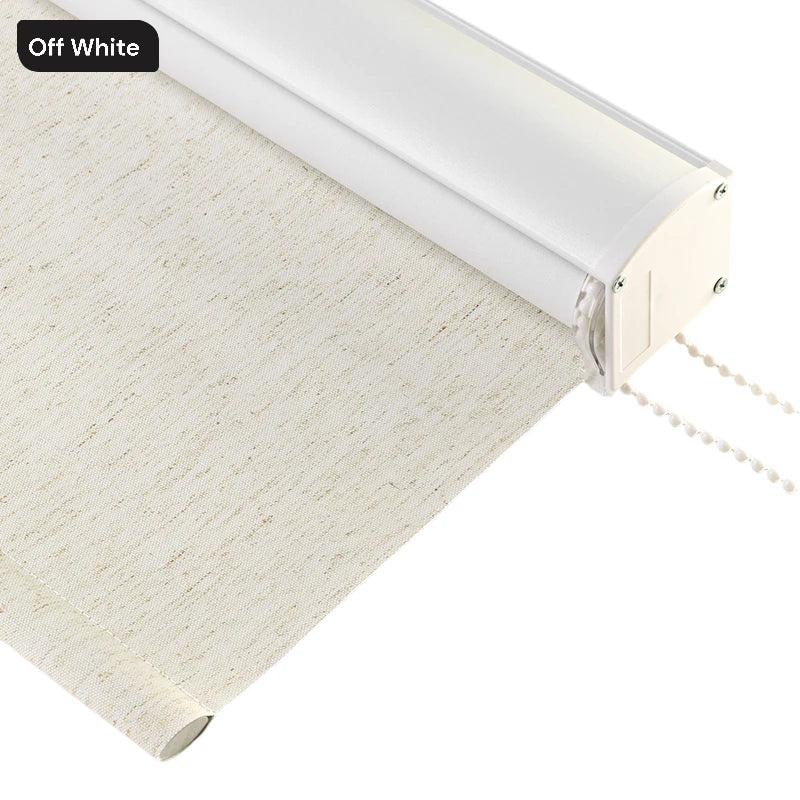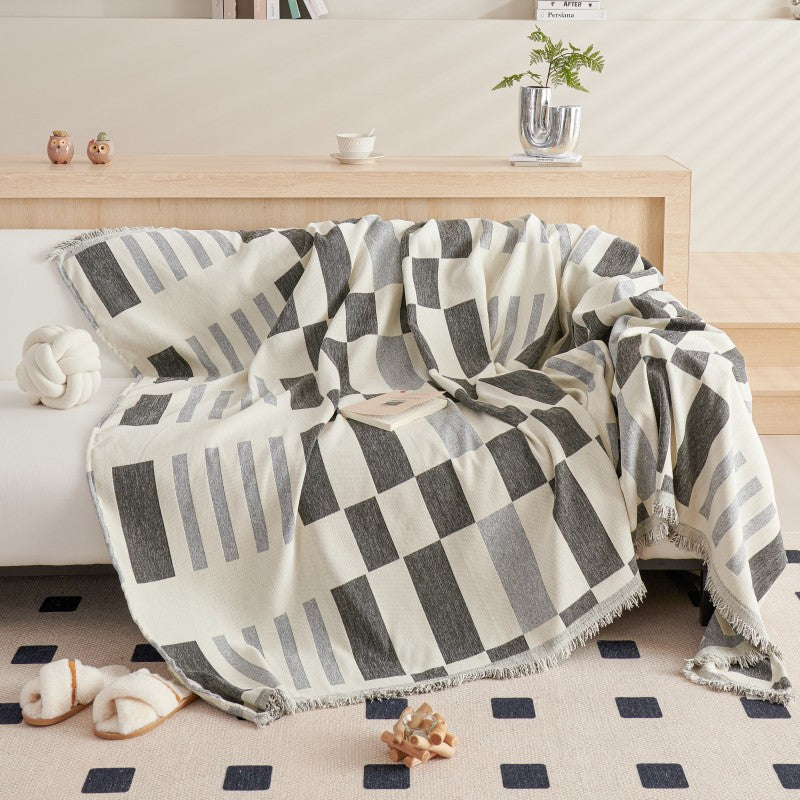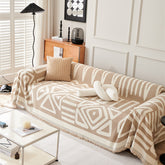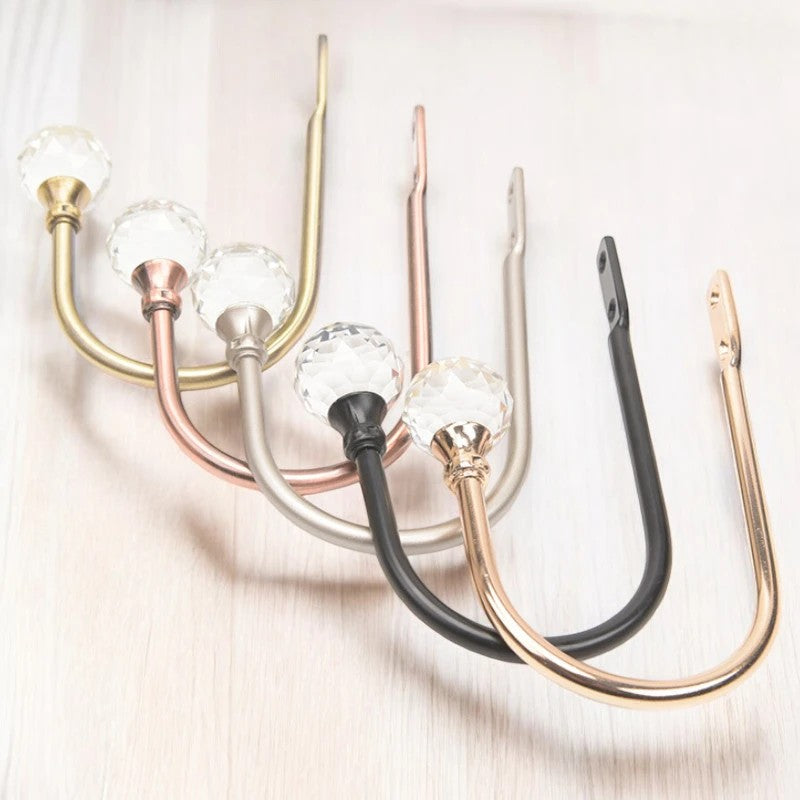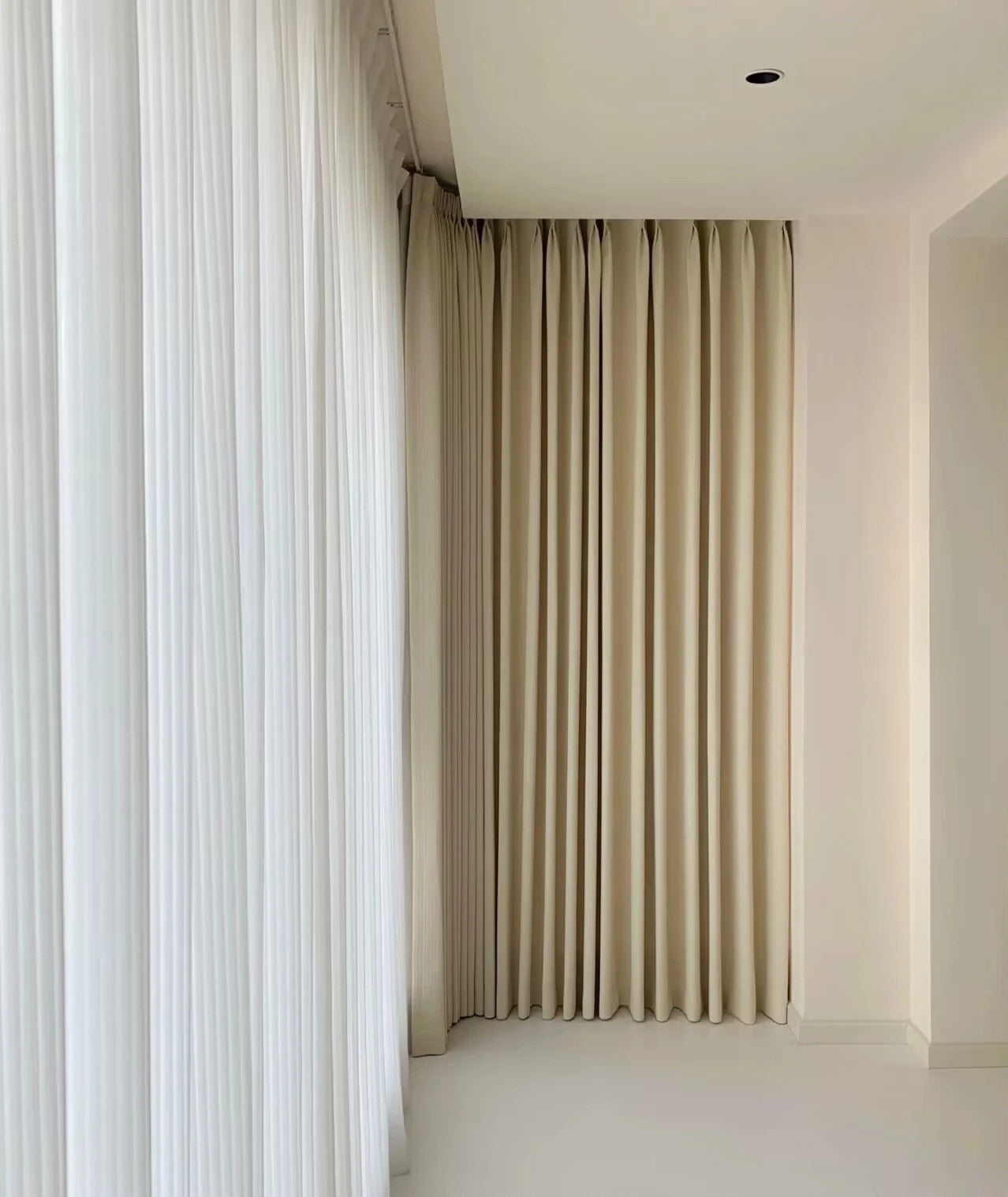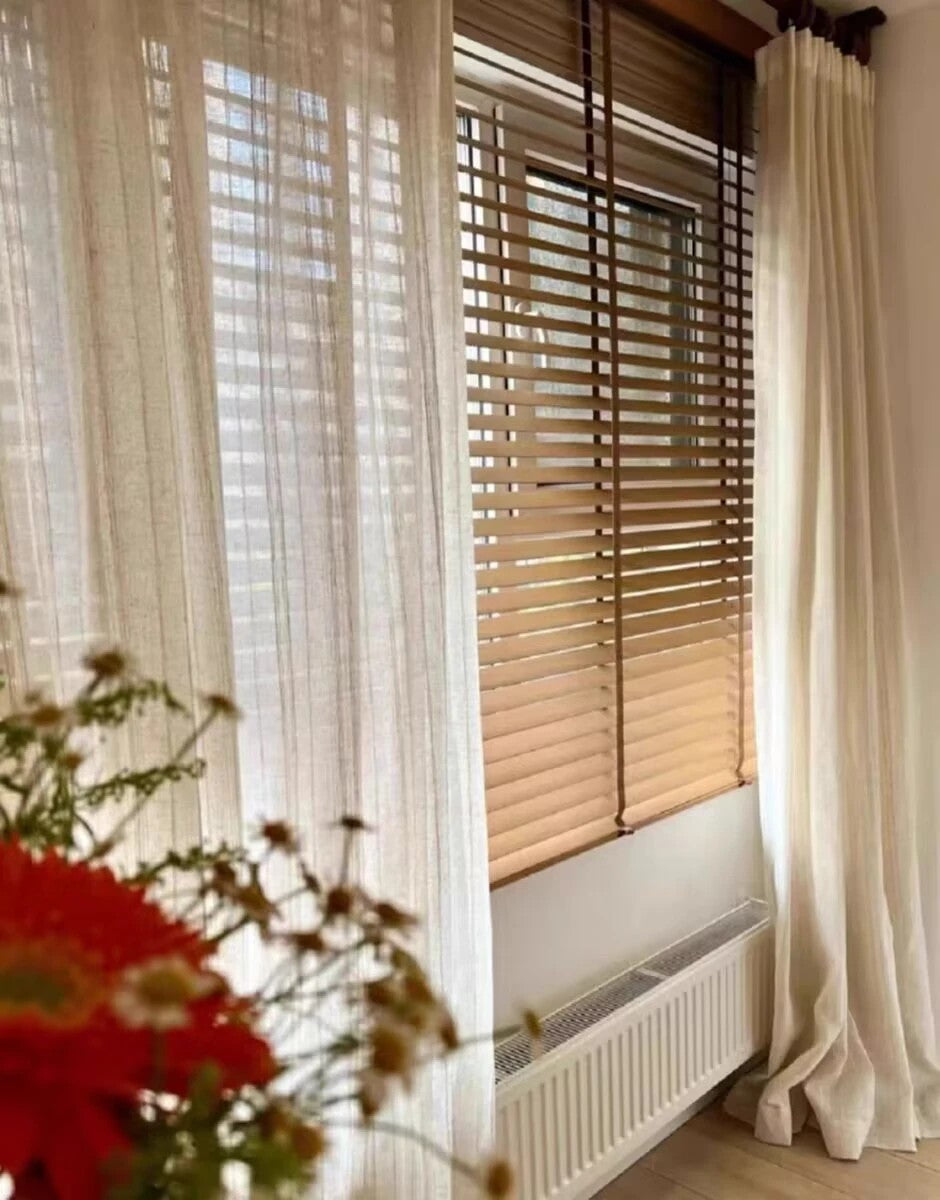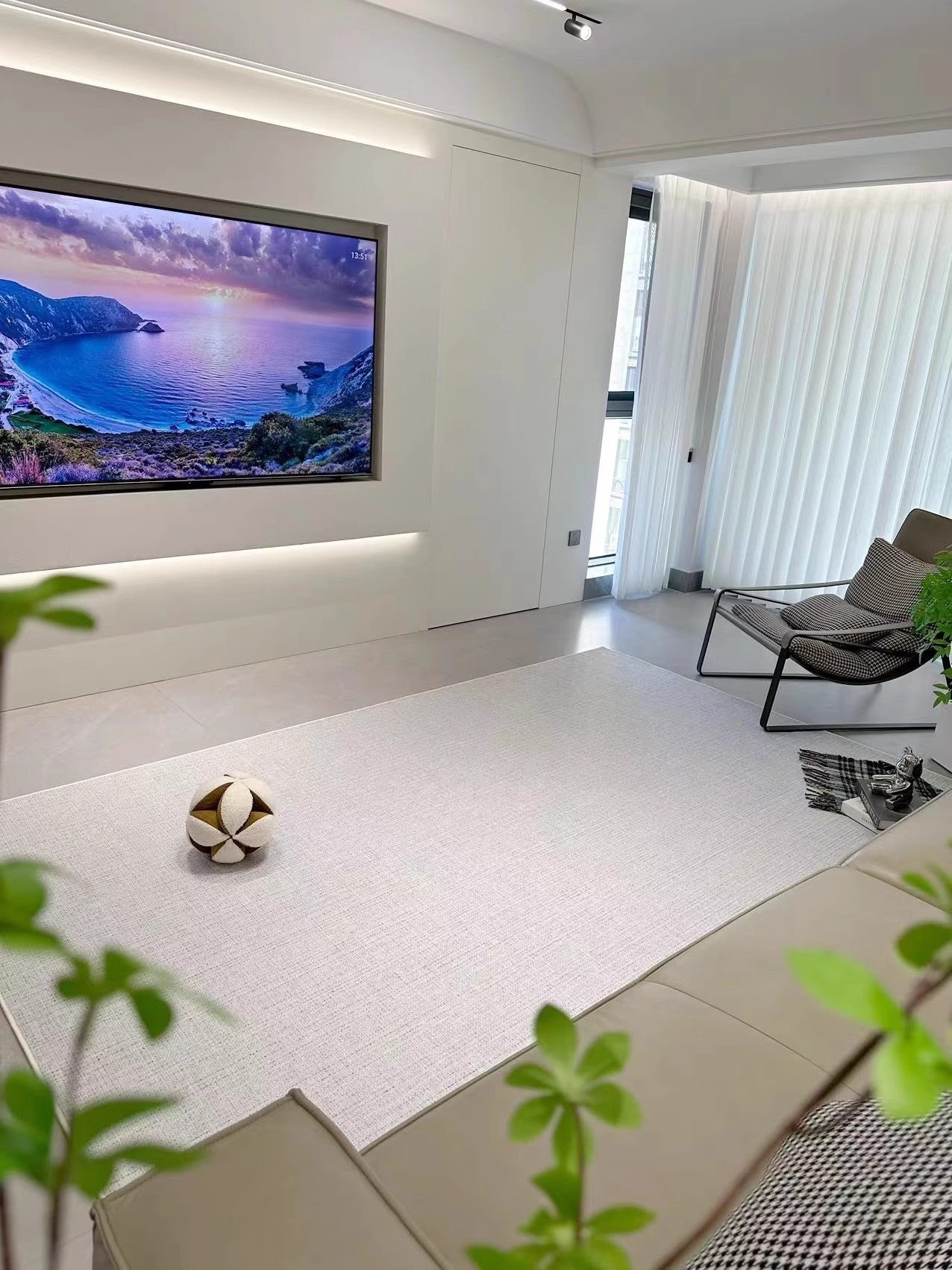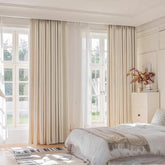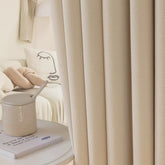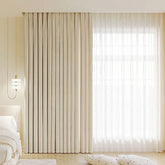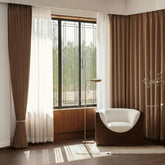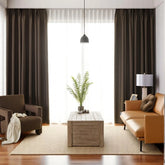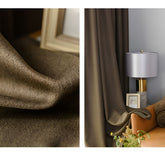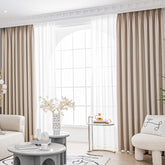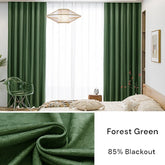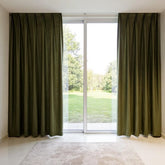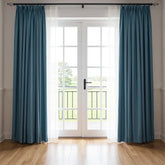How to Choose Curtain Colors for Every Room - A Guide
Welcome to our comprehensive guide on selecting curtain colors for every room in your home. Curtain colors play a vital role in enhancing the aesthetic appeal of any space while also setting the mood. Whether you're looking to create a bold statement or a calming ambiance, choosing the right curtain colors is key. In this article, we'll provide you with insightful tips and inspiration to help you select the perfect curtain colors that reflect your style and elevate your home. So let's get started!
Key Takeaways
- Curtain colors can enhance the aesthetic appeal of any space while also setting the mood.
- Choosing the right curtain colors is essential for creating a cohesive look that reflects your style and enhances the ambiance of your home.
- Factors to consider when selecting curtain colors include the goal/mood of the room, existing elements, natural light, fabric type, and current trends.
- Vibrant colors can energize a room, while neutral colors can create a calming effect.
- Experimenting with contrasting colors and adding texture through patterned curtains can elevate your interior design.
Setting the Room Goal & Curtain Color Psychology
When choosing curtain colors for each room, it's crucial to identify the mood or goal you want to achieve beforehand. The psychology of colors can significantly impact the ambiance of the space and influence emotions, behaviors, and thoughts. Therefore, it's essential to select colors that promote the desired mood and complement the room's overall aesthetic.
Curtain color psychology is a fascinating aspect of interior design that can elevate the look and feel of any room. For instance, blue hues can create a calming effect, making them ideal for bedrooms or living spaces. On the other hand, warmer colors like yellow and orange can stimulate creativity and energy, making them suitable for home offices or creative spaces.
In addition to curtain color psychology, it's also helpful to consider room-specific curtain colors. Each room in your home has unique characteristics that can impact the curtain color selection. For example, darker colors might be more suitable for media rooms to create a cinematic feel, while lighter colors may work best in kitchens to enhance the natural light and create an open, airy atmosphere.
| Mood/Goal | Ideal Curtain Colors |
|---|---|
| Calming and serene | Blue, green, lavender |
| Bright and energizing | Yellow, orange, red |
| Cozy and inviting | Neutral, warm shades of beige, brown |
| Invigorating and inspiring | Bright and bold colors like purple, magenta, and turquoise |
Keep in mind that the above table is merely a guideline, and you should ultimately choose colors that speak to your personal style and preferences. At the same time, it's worth noting that the color white can work well in any room as it creates a clean and crisp look, while black can add depth and sophistication to your space.

Weighing Mood vs. Daylight
When selecting curtain colors, it's important to strike a balance between creating a specific mood and considering the natural light in the room. Vibrant curtain colors can add energy and excitement to a space, while neutral curtain colors can create a calming effect.
We recommend weighing the mood you want to create against the amount of daylight that enters the room. A room with ample light can support darker, more vibrant curtain colors. Conversely, a room with limited natural light may benefit from lighter, neutral curtain colors that allow light to penetrate easily.
Consider the placement of the windows in the room, as well as the time of day when the room receives the most sunlight. By doing so, you can determine the best curtain colors that complement the natural light and enhance the ambiance of the space.
Ultimately, the decision between vibrant and neutral curtain colors comes down to personal preference and the desired mood for the room. Experiment with different colors and observe how they interact with the natural light in the room to select the perfect curtain color scheme
Matching Existing Elements
Another essential factor to consider when selecting curtain colors is the existing elements in the room, such as the wall color, flooring, and furniture. You can choose to either match or contrast your curtains with these elements.
If you have a bold and colorful wall, you may want to select curtains that have a neutral color to balance the room. Alternatively, you can choose curtains that have the same color as your walls to create a cohesive look.
On the other hand, if you have neutral-toned walls, you can experiment with different curtain colors to add some vibrancy to the room. For example, if you have light-colored walls, you can opt for bold and modern curtain colors like navy blue or emerald green to create a striking contrast.
When matching or contrasting with existing elements in the room, it's essential to consider both modern and timeless curtain color options. While trending colors may be appealing, it's important to select colors that will stand the test of time, ensuring your curtains remain in style for years to come.
By paying attention to the wall color, flooring, and furniture, you can select curtain colors that complement your existing décor, creating a unified and harmonious look. Whether you choose to match or contrast, it's crucial to select curtains that enhance the overall aesthetic of the room.
Experimenting with Contrasting Colors
Are you feeling bold and looking to make a statement with your curtain color choices? Consider experimenting with contrasting colors! This trend is all about pairing colors that are opposite on the color wheel for a striking effect.
One trendy option is to pair a cool color, such as blue or green, with a warm color, such as orange or pink. For a more unique approach, try pairing unexpected colors, such as mustard yellow and deep purple, or coral and navy blue.
It's important to balance out the contrasting colors, so one color doesn't overpower the other. You can achieve this balance by using one color as the dominant color and the other as an accent. Alternatively, you can use both colors in equal amounts throughout the room.
Keep in mind that while experiment with contrasting colors can be exciting, it's important to consider the overall aesthetic and mood of the room. Be sure the colors you choose align with the room goal and other elements in the space.
Some stylish and trendy curtain color options for experimenting with contrasting colors include mustard yellow and gray, navy blue and blush pink, and forest green and burnt orange.
Weighing Patterns vs. Plains
When it comes to curtain colors, another important decision to make is whether to opt for patterned or plain curtains. Each has its own benefits and drawbacks, so it's essential to weigh the options based on your goals and preferences.
Patterned curtains can add texture and character to a space, creating interest and depth. They can also be used to tie together different elements in a room, such as wall art or accent pillows. However, be careful not to overwhelm a space with too many patterns, as this can create visual confusion and detract from the overall aesthetic.
On the other hand, plain curtains can provide a calming effect and offer a neutral backdrop for other design elements in the room. They can also make a statement on their own when paired with bold colors or unique textures. Classic curtain colors like white, beige, or gray are versatile and can work well in both patterned and plain designs.
Ultimately, the decision between patterned or plain curtains comes down to personal style and the desired mood of the room. Experiment with different options and see what works best for your space.
Classic Curtain Colors
Classic curtain colors are timeless and versatile, making them an excellent choice for any room. Shades of white, beige, gray, and navy are popular options that can work well in a variety of design styles and color schemes.
| Color | Psychology |
|---|---|
| White | Symbolizes purity, innocence, and simplicity. Can make a room feel larger and more airy. |
| Beige | Creates a warm, inviting atmosphere. Can work well in both traditional and modern designs. |
| Gray | Symbolizes balance, neutrality, and sophistication. Can add depth and contrast to a room. |
| Navy | Represents stability, trust, and authority. Can provide a bold accent in a neutral room or complement other shades of blue. |
Whether you opt for patterned or plain curtains, don't be afraid to experiment with different colors and textures to create a unique and personalized look.
Considering Window Number
Another crucial factor to keep in mind when selecting curtain colors is the number of windows in the room. Single-window rooms provide an opportunity to experiment with bold colors or patterns that add visual interest. However, for rooms with multiple windows, it's best to stick to neutral shades or colors that match the room's dominant color.
For rooms without windows, curtains can still play a significant role in enhancing the ambiance. Consider using light-colored curtains to open up space and create the illusion of a window. Alternatively, you can use curtains to create a focal point in the room by choosing a vibrant color or pattern that complements the room's color scheme.
When selecting curtains based on window number, it's crucial to prioritize natural light. Opt for curtains that can be easily drawn back to allow natural light to flood the room during the day. This approach can also help create a cohesive look by matching the curtain colors to the room's existing elements, such as wall color or furniture.
Here are some curtain color tips to consider based on the number of windows in the room:
- Single-window rooms: Experiment with bold colors or patterns that add visual interest.
- Multiple-window rooms: Stick to neutral shades or colors that match the room's dominant color.
- No windows: Use light-colored curtains to open up space or create a focal point with vibrant colors or patterns.
Overall, when considering the number of windows in a room, it's essential to keep natural light and existing elements in mind while selecting the perfect curtain color.
Considering Fabrics
When choosing curtain colors, it's important to consider the fabric type, as different materials can have a significant impact on the overall look and feel of your space. Some fabrics create a more relaxed ambiance, while others add a touch of elegance or formality to a room. Here are some popular fabrics and the latest curtain color trends that work well with them:
| Fabric Type | Latest Curtain Colors | Elegant Curtain Colors |
|---|---|---|
| Sheer |
|
|
| Cotton |
|
|
| Silk |
|
|
| Linen |
|
|
Whether you prefer trendy or timeless curtain colors, considering the fabric type can help you make a more informed decision that complements your space and personal style. Keep in mind that some fabrics require special care, so be sure to read the care instructions before purchasing.
Conclusion
Choosing the right curtain colors for each room in your home can seem like a daunting task. However, with the tips and insights we've provided in this guide, we hope you feel confident in your decision-making process.
Remember to consider the goal and mood you want to achieve in each room, weigh the balance between mood and natural light, match or contrast with existing elements, experiment with contrasting colors, weigh patterns versus plains, consider the number of windows, and choose the right type of fabric.
By keeping these factors in mind and staying up-to-date with the latest curtain color trends, you can enhance the overall aesthetic and ambiance of your home.
We encourage you to have fun with your curtain color choices and let your personal style shine through. Thank you for reading!
FAQ
Q: How important are curtain colors when decorating a room?
A: Curtain colors play a crucial role in enhancing the aesthetic and mood of a room. They can complement existing elements, create a specific ambiance, and add visual interest to your space.
Q: Is there any psychology behind curtain colors?
A: Yes, curtain colors can evoke different emotions and moods. For example, vibrant colors can energize a room, while neutral colors create a calming effect. Understanding the psychology behind curtain colors can help you achieve your desired atmosphere.
Q: Should I consider natural daylight when choosing curtain colors?
A: Absolutely! The amount of natural light in a room should influence your curtain color choices. Vibrant colors can work well in well-lit rooms, while neutral colors are ideal for rooms with less natural light. Finding the right balance is key.
Q: Should I match or contrast my curtain colors with existing elements?
A: It depends on the look you want to achieve. Matching curtain colors with elements like walls, flooring, and furniture can create a cohesive look. On the other hand, contrasting colors can make a bold statement. Consider both options and choose what suits your style and vision.
Q: Can I experiment with contrasting colors in curtain selection?
A: Absolutely! Experimenting with contrasting colors can add visual interest and elevate your interior design. Don't be afraid to try trendy or unique color combinations that reflect your personality and style.
Q: Should I choose patterned or plain curtains?
A: It depends on the overall aesthetic you want to achieve. Patterned curtains can add texture and character to a room, while plain curtains offer a more classic and versatile look. Consider the style of your space and make a decision based on your preferences.
Q: How should I consider the number of windows in a room when choosing curtain colors?
A: The number of windows can affect curtain color selection. For single windows, you have more flexibility in terms of colors and patterns. For multiple windows, consider coordinating the curtain colors to create a cohesive look. If there are no windows, focus on creating the desired ambiance with your curtain color choice.
Q: Is fabric type important when choosing curtain colors?
A: Absolutely! Different fabrics can impact the overall aesthetic of your curtains. Consider the fabric type and its drape, texture, and sheen when selecting colors. Stay updated on the latest trends and choose elegant curtain colors that complement your chosen fabric.



